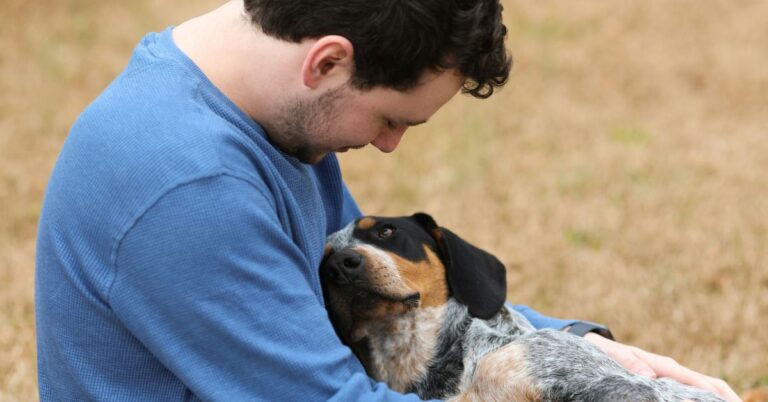15 Reasons Your Dog Might Be Acting Strangely at Night
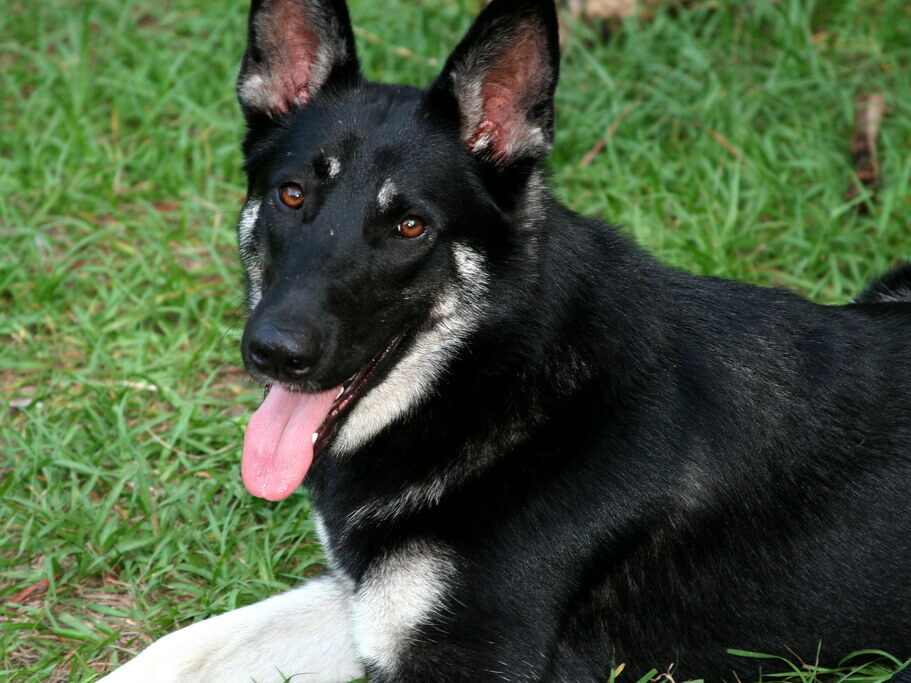
Dogs can sometimes exhibit unusual behaviors at night that might leave you puzzled or concerned. These behaviors can arise from various reasons, ranging from something as simple as pent-up energy to more complex issues like anxiety or health problems. Here’s a deeper dive into why your dog might be acting strangely at night.
Pent-Up Energy

If your pup hasn’t had enough physical activity during the day, they may become restless at night. This pent-up energy can manifest in behaviors like pacing, barking, or even trying to engage you in play when you’re ready for bed. Dogs need sufficient exercise to burn off energy and settle down for the night. Making sure your dog gets enough exercise through walks, playtime, and mental stimulation can help them relax when it’s time to sleep.
Anxiety or Stress

Nighttime anxiety in dogs can be triggered by various factors, such as being alone in the dark, loud noises, or even environmental changes. This anxiety can cause them to pace, whine, or exhibit other signs of distress. Remember, dogs are creatures of habit, and any disruptions to their usual routine or environment can lead to stress.
Hunger or Thirst
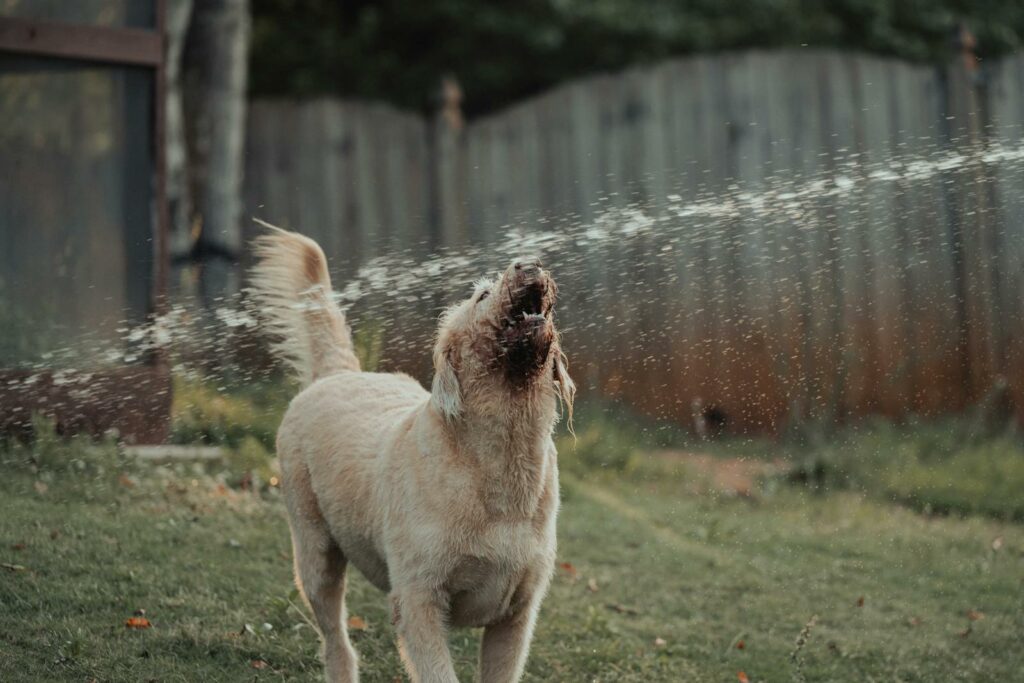
If your dog’s last meal was too early or too small, they might wake up hungry or thirsty during the night. This can lead to restlessness, whining, or even attempts to wake you up. Dogs have varying metabolic rates, and some might need a late-night snack to keep them satisfied through the night. Providing a balanced diet and making sure your dog has access to water throughout the night can help prevent these disruptions.
Need to Relieve Themselves
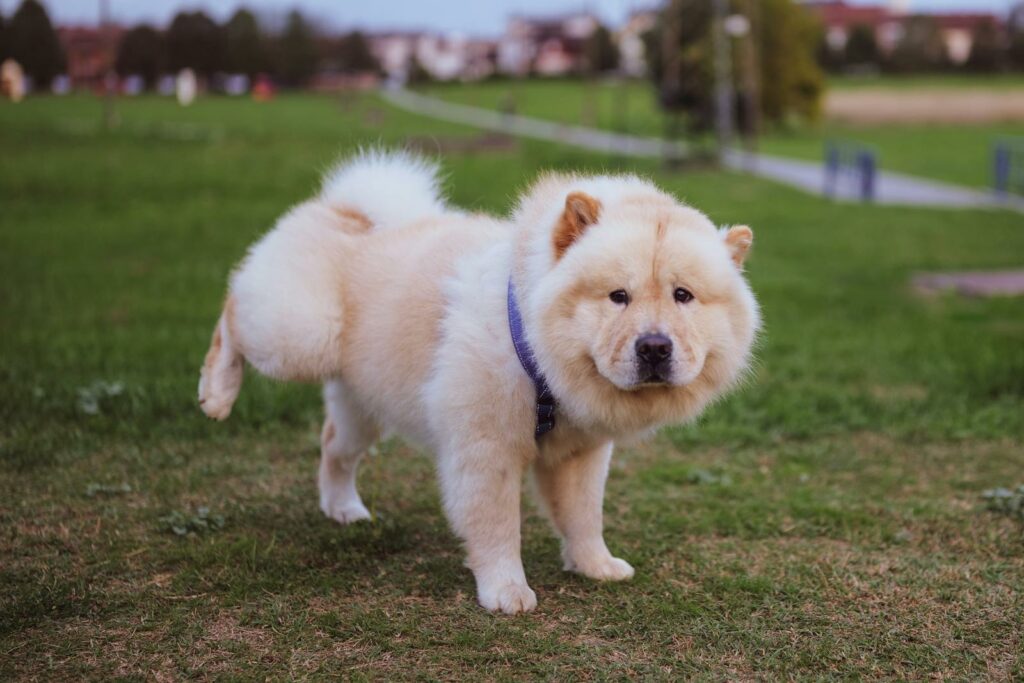
Your dog might need to go to the bathroom during the night, especially if they drank a lot of water before bed or didn’t have a chance to relieve themselves before settling down. This need can cause them to pace, whine, or scratch at the door. Ensuring your dog has a bathroom break before bed can help reduce the chances of them waking up needing to go outside.
Age-Related Cognitive Decline
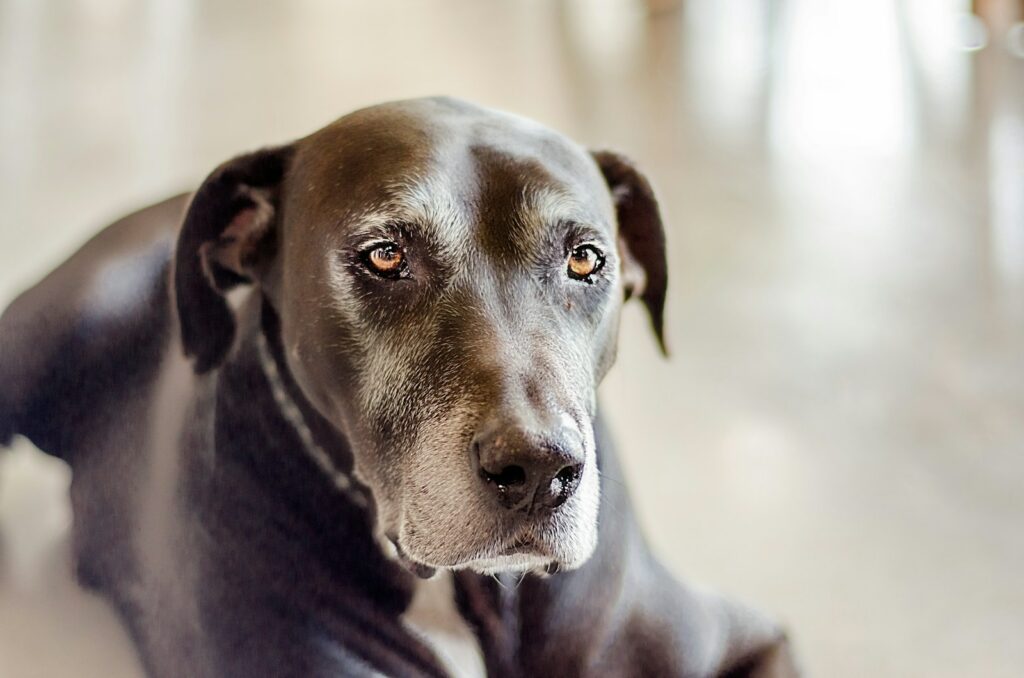
Older dogs can experience cognitive dysfunction syndrome (similar to dementia in humans), which can cause confusion, disorientation, and restlessness, particularly at night. These symptoms can include wandering, barking for no apparent reason, and difficulty settling down. Suppose your senior dog is showing signs of cognitive decline. In that case, you should consult your veterinarian for advice on how to manage these behaviors.
Noise Sensitivity
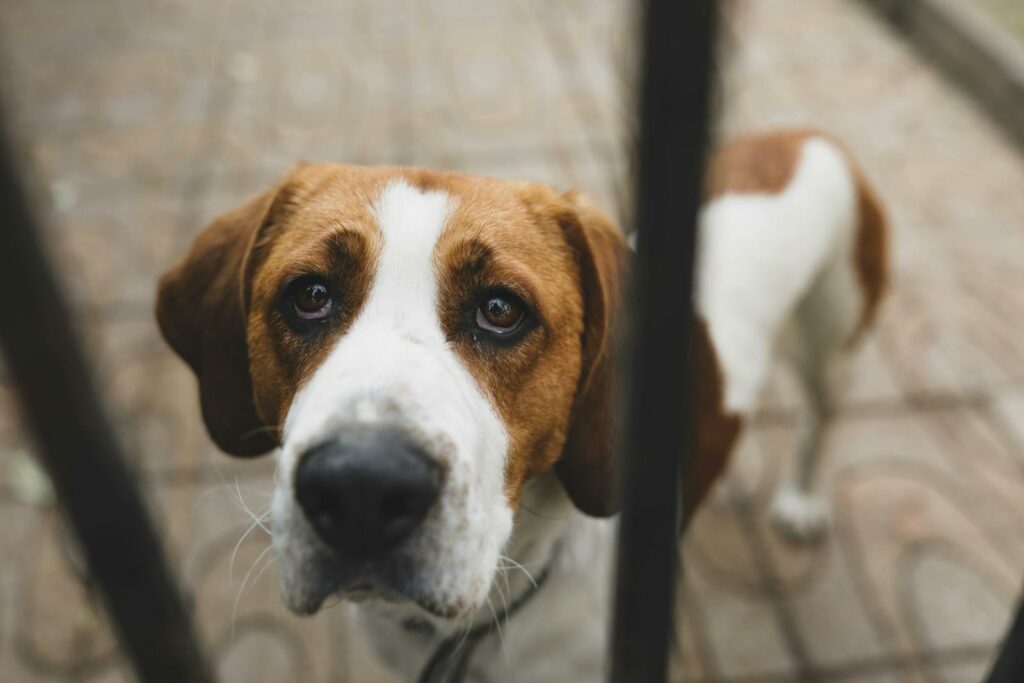
Dogs have a much keener sense of hearing than we do, and they can be disturbed by noises that we might not even notice. This could include sounds from outside, like traffic, sirens, or wildlife, or even household noises, like the refrigerator or HVAC system cycling on. If your dog is sensitive to these noises, they may become alert or anxious at night. White noise machines or calming music can sometimes help mask these sounds and help your dog relax.
Pain or Discomfort

If your dog is in pain due to an injury, arthritis, or another medical condition, they might have trouble settling down at night. Pain can cause them to pace, whine, or struggle to find a comfortable position to sleep in. Common signs of discomfort include restlessness, reluctance to lie down, or frequent shifting positions. Going to the vet can help diagnose and treat any underlying conditions that might be causing your dog pain.
Inconsistent Routine

Dogs thrive on routine, and changes to their daily schedule can lead to confusion or anxiety, especially at night. Thismight include changes in feeding times, different people in the home, or changes to their sleeping arrangements. A consistent routine helps dogs feel secure, so sticking to a regular schedule for meals, walks, and bedtime can help prevent nighttime restlessness.
Attention-Seeking Behavior

Sometimes, dogs act out at night because they want attention. This could be due to feeling neglected during the day or simply because they’ve learned that acting out gets a response from you. If your dog barks, whines, or paws at you during the night, they might be seeking attention or playtime. It’s important to ensure they get enough interaction and mental stimulation during the day to prevent this behavior from continuing at night.
Environmental Changes

Dogs are sensitive to changes in their environment, and something as simple as moving to a new home, adding a new family member, or rearranging furniture can cause them to feel unsettled. This discomfort can manifest as restlessness or anxiety at night. Helping your dog adjust by creating a familiar, comfortable space for them to sleep and sticking to their usual routines can help ease their transition.
Nighttime Fear or Phobias
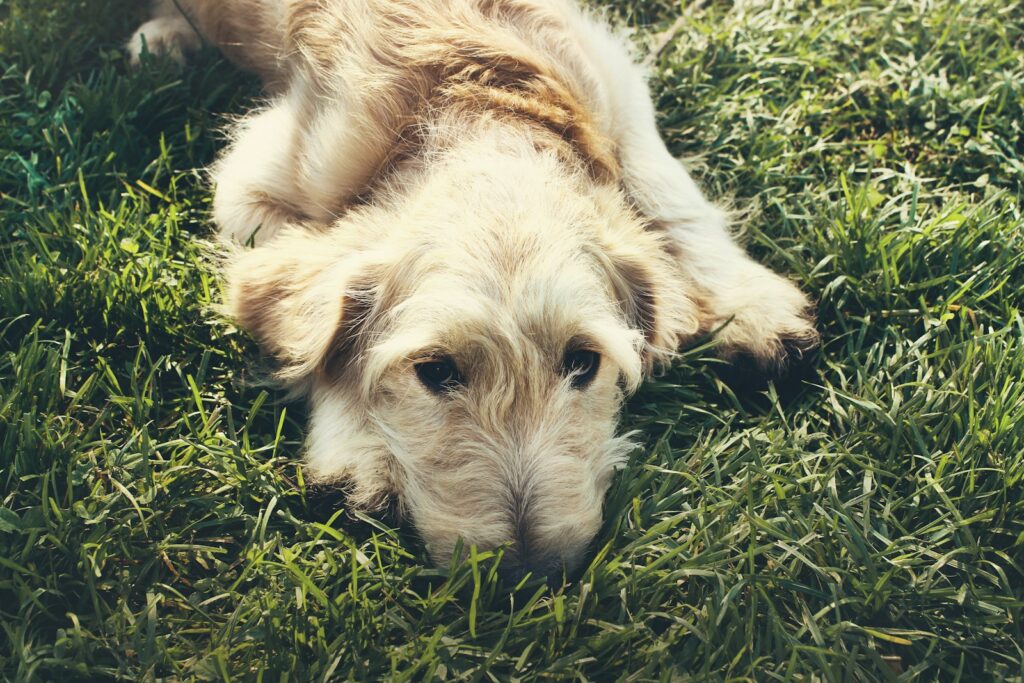
Some dogs develop specific nighttime fears or phobias, such as fear of the dark, loud noises, or being alone. These fears can lead to behaviors like hiding, whining, or even trying to wake you up. Providing a nightlight or allowing them to sleep in your room can help reduce their fear. In more severe cases, behavior modification or consultation with a vet might be necessary to help your dog overcome their nighttime phobias.
Boredom
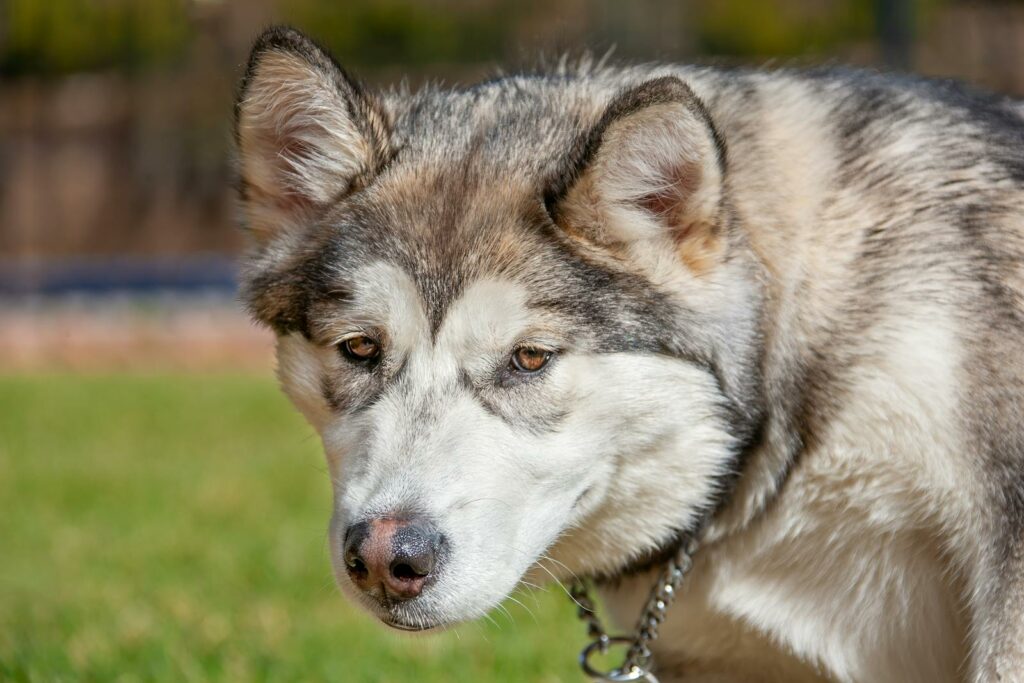
Dogs that aren’t mentally or physically stimulated during the day might become bored at night, leading to restlessness, chewing, or other destructive behaviors. Boredom can be particularly problematic for high-energy breeds that require more exercise and mental stimulation. Providing your dog with toys, puzzles, and activities during the day can help tire them out, making them more likely to sleep soundly at night.
Health Issues
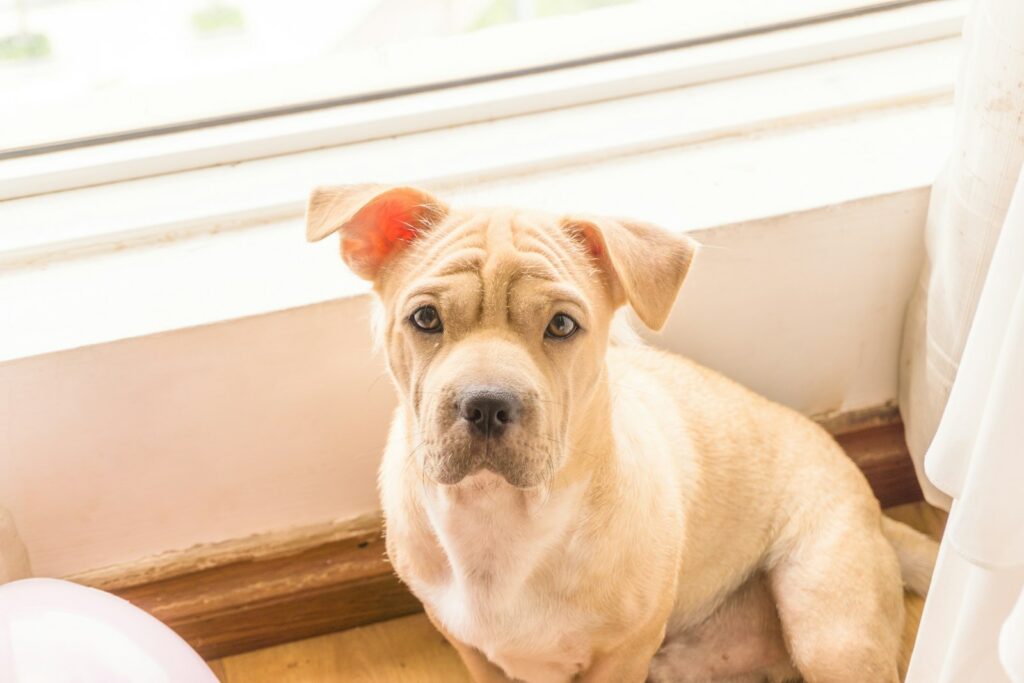
Some health issues, like urinary tract infections, gastrointestinal problems, or respiratory issues, can cause discomfort and lead to restlessness at night. If your dog is frequently waking up, having accidents in the house, or showing other signs of illness, it’s important to consult your vet. Addressing any underlying health problems can help your dog feel better and sleep more soundly.
Nighttime Hunger
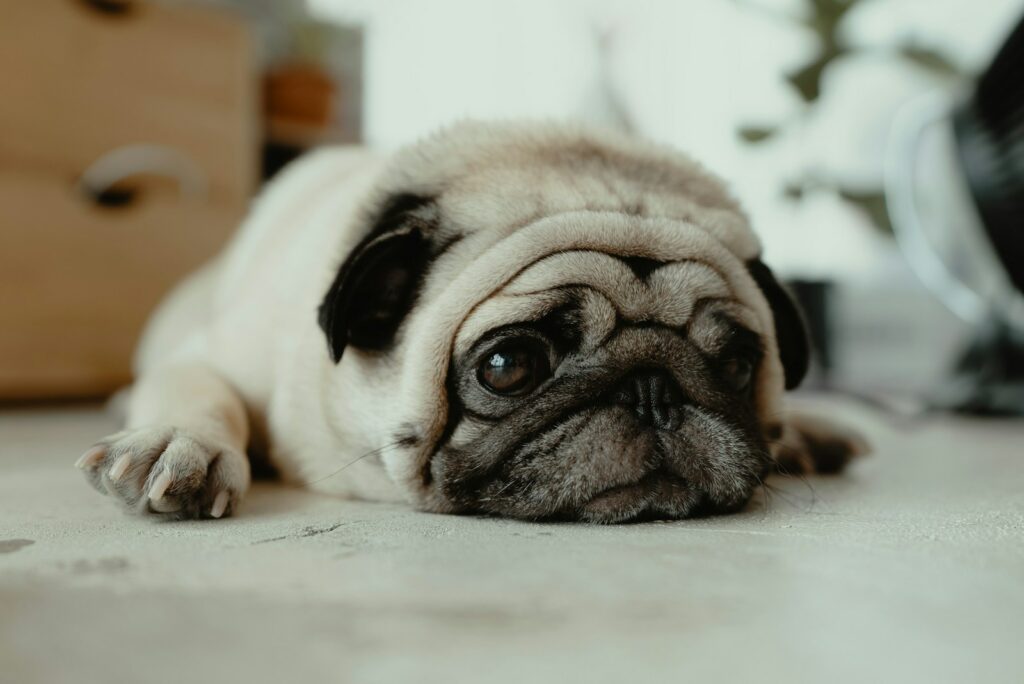
Some dogs experience increased hunger at night, which can cause them to wake up and search for food. This might be due to medical conditions like diabetes or hyperthyroidism or simply a result of not getting enough food during the day. Ensuring your dog gets a balanced diet with regular feeding times can help prevent nighttime hunger pangs.
Hormonal Changes

Hormonal changes, particularly in unspayed or unneutered dogs, can lead to restlessness or anxiety at night. These changes can affect your dog’s behavior, causing them to pace, whine, or act out. If you suspect hormonal changes are affecting your dog’s behavior, it’s important to consult your vet. Spaying or neutering, along with other treatments, can help manage these behaviors.

